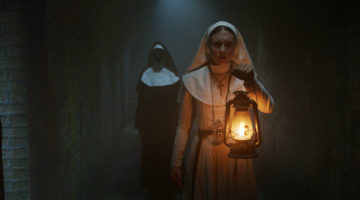Review: Parkland
Synopsis:
The day President John F. Kennedy was assassinated in Texas in 1963 and those that followed are recreated in detail, chronicling the hospital staff that tended to the President, the man that captured it on film, and the family of the person accused of pulling the trigger.
Cast:
In an ensemble cast that features Zac Eron, Marcia Gay Harden, Ron Livingston, Billy Bob Thornton, and Colin Hanks, it’s Paul Giamatti as Abraham Zapruder and James Badge Dale as Robert Oswald, Lee Harvey’s brother, that stand out.
Review:
Peter Landesman’s Parkland just flies by in a whir; there are but maybe five minutes where you can catch your breath. The major event the film chronicles – the assassination of President John F. Kennedy on November 22, 1963 – may be a familiar one, but it’s the smaller stories and digressions told in tandem, with paramount tension, that makes this directorial debut a fascinating one.
The 93-minute, star-laden film is apolitical, instead seeking a humanistic touch. Parkland is the name of the hospital JFK arrived following the shot, and while some doctors knew the inevitable, those on hand, played by Efron, Harden, and Hanks among others, tried desperately to save him.
When Lee Harvey Oswald, the man assumed to have killed the President, arrives the next day having been shot himself, there is a faint hesitation in the air and different tone as the crew works once again with a victim – but hardly the same one.
It’s that moment and the many in between that are intriguing. The conversations among staff, the protocols that have to be followed and some that are ignored, as well as the strange sense of normalcy that has to be applied to very abnormal circumstances all make this a compelling watch.
We follow FBI investigators who may have severely blown their job, a humble and generous man who would film the shooting and endure subsequent trauma by the name of Abraham Zapruder (Giamatti), and Oswald’s maligned brother played with great humanity by James Badge Dale.
Parkland lingers long enough on all its characters to catch the emotional effects of the death. The camera is intimate and shaky at times, stressing tumult and peril. Some of stories are more earnest than others, and most don’t dig at all deep – it’s strictly professional, save for Mr. Zapruder’s story. While the film doesn’t have much to say, it’s a fascinating capture of a few unforgettable days in Texas, almost more a docu-drama than anything else.
Should You See It?
It’s a well-told, fast-paced tense drama that doesn’t necessarily shed new light, but does offer some interesting stories perhaps often ignored.
[star v=3]









